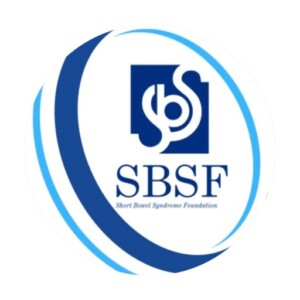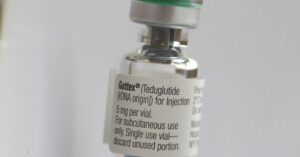 Contributing to Short Bowel Syndrome (SBS) research and development is a commendable endeavor, a noble pursuit that signifies a deep commitment to advancing medical science and improving the lives of those affected by this complex condition. This involvement, whether it’s through active participation in clinical trials, staying informed about the latest research, or advocating for patient rights, represents a significant contribution to a field that is constantly evolving and holds the potential to transform countless lives. It’s an act of compassion and dedication, a testament to the human spirit’s resilience and the collective desire to better understand and combat challenging health conditions like SBS. It’s not just about making a difference today, but also about paving the way for future advancements and breakthroughs that could redefine our approach to managing and treating Short Bowel Syndrome. Indeed, every effort in this direction, no matter how small, is a step towards a future where SBS patients can lead healthier, more fulfilling lives. So, let’s applaud and support these commendable endeavors, for they are the driving force behind the progress we seek in the world of SBS research and development.
Contributing to Short Bowel Syndrome (SBS) research and development is a commendable endeavor, a noble pursuit that signifies a deep commitment to advancing medical science and improving the lives of those affected by this complex condition. This involvement, whether it’s through active participation in clinical trials, staying informed about the latest research, or advocating for patient rights, represents a significant contribution to a field that is constantly evolving and holds the potential to transform countless lives. It’s an act of compassion and dedication, a testament to the human spirit’s resilience and the collective desire to better understand and combat challenging health conditions like SBS. It’s not just about making a difference today, but also about paving the way for future advancements and breakthroughs that could redefine our approach to managing and treating Short Bowel Syndrome. Indeed, every effort in this direction, no matter how small, is a step towards a future where SBS patients can lead healthier, more fulfilling lives. So, let’s applaud and support these commendable endeavors, for they are the driving force behind the progress we seek in the world of SBS research and development.
Stay Informed: Keep abreast of the latest research by following reputable medical journals, attending conferences, and participating in online forums related to SBS. Consider exploring publications in esteemed publications such as the Journal of Parenteral and Enteral Nutrition, Gastroenterology, and Clinical Nutrition.

Connect with Experts: Forge connections with gastroenterologists, nutritionists, and researchers specializing in SBS. They can provide valuable insights and guide you toward relevant studies. Attend local or virtual conferences to network with professionals in the field.
Volunteer for Clinical Trials: Clinical trials are pivotal in advancing SBS treatment. Consider volunteering for trials related to SBS therapies, medications, or surgical techniques. Check with research centers or hospitals for ongoing trials. Scientists conduct clinical trials to evaluate new treatments, interventions, and diagnostic methods for SBS. By participating in these trials, patients contribute valuable insights that shape future care.
Currently, there are 23 ongoing clinical trials related to Short Bowel Syndrome (SBS). These trials aim to explore new treatments, interventions, and diagnostic approaches. Specifically:
- Phase III Trials: Eight trials are in Phase III, indicating they are at an advanced stage of testing.
- Phase II Trials: Six trials are in Phase II, focusing on safety and efficacy assessments.
Additionally, you can find clinical studies on SBS at ClinicalTrials.gov. Remember to consult your healthcare provider before participating in any clinical study to ensure safety and suitability for your specific situation. Here are some current clinical trials.
- Comparison of Different Oral Rehydration Solutions: This study aims to determine if a new Oral Rehydration Solution (ORS) can improve patient compliance
- Evaluation of Long Term Safety and Efficacy of Glepaglutide in Treatment of SBS: The primary objective of this trial is to evaluate the long-term safety of glepaglutide treatment in patients with SBS
- A Study to Evaluate the Effectiveness and Safety of Glepaglutide in the Treatment of Short Bowel Syndrome: This trial aims to confirm the effectiveness of glepaglutide in reducing parenteral support volume in patients with SBS
- Short Bowel Syndrome and Teduglutide VS Placebo: This study plans to examine the gastrointestinal (GI) physiologic profile of Teduglutide, a Glucagon-like Peptide 2 Analog, as a possible intestinotrophic growth factor capable of inducing small bowel adaptation and regeneration in patients with SBS
- A Study to Evaluate the Effectiveness and Safety of Apraglutide in Adults with Short Bowel Syndrome and Intestinal Failure: The primary purpose of this study is to evaluate the effectiveness of Apraglutide in reducing the administered volume per week of parenteral support from baseline, compared with placebo in adults with SBS
For a complete list of ongoing clinical trials related to SBS, you can visit ClinicalTrials.gov
Collaborate with Patient Advocacy Groups: Organizations like the Short Bowel Syndrome Foundation and The Gutsy Perspective offer resources and opportunities for involvement. Participate in awareness campaigns, fundraising events, and patient support groups.

Educate Others: Raise awareness about SBS by sharing accurate information with your community, friends, and family. Consider organizing educational events or webinars. Remember, your involvement can make a significant difference! Whether you’re a patient, caregiver, or a passionate advocate, contributing to SBS research helps improve patient outcomes and quality of life.
Advancements in SBS Research and Development
Short Bowel Syndrome (SBS) is a complex condition that results from the loss of significant bowel tissue. Researchers and clinicians are actively exploring innovative approaches to enhance patient outcomes and quality of life. Here are key aspects of ongoing
Research & Development:
 Therapeutic Pipeline: The SBS therapeutic pipeline includes promising drug candidates and nutritional support strategies. These developments offer hope for improved management and better quality of life for SBS patients.
Therapeutic Pipeline: The SBS therapeutic pipeline includes promising drug candidates and nutritional support strategies. These developments offer hope for improved management and better quality of life for SBS patients.
There are several promising drugs in the pipeline for Short Bowel Syndrome (SBS). Here are some key aspects:
- Targets: Some of the targets of the SBS pipeline drugs include Glucagon Like Peptide 2 Receptor (GLP2R), Glucagon Like Peptide 1 Receptor (GLP1R), and Cystic Fibrosis Transmembrane Conductance Regulator.
- Mechanisms of Action: The key mechanisms of action of the SBS pipeline drugs include GLP2R Agonist, GLP1R Agonist, and Cystic Fibrosis Transmembrane Conductance Regulator Blocker.
- Routes of Administration: The key routes of administration in the SBS pipeline drugs include subcutaneous, oral, intravenous, and parenteral.
- Specific Drugs: One of the promising pipeline drugs for SBS is Zealand Pharma’s Glepaglutide (ZP1848), a long-acting GLP-2 analog. It was in phase III clinical trials as of 2021.
- Number of Drugs: As of 2024, there were 20 drugs in development for SBS by 19 companies/universities/institutes. The top development phase for SBS is preclinical with ten drugs in that stage.
Please note that this information is subject to change as new research and clinical trials are conducted. Always consult with a healthcare provider for the most up-to-date and personalized advice.
